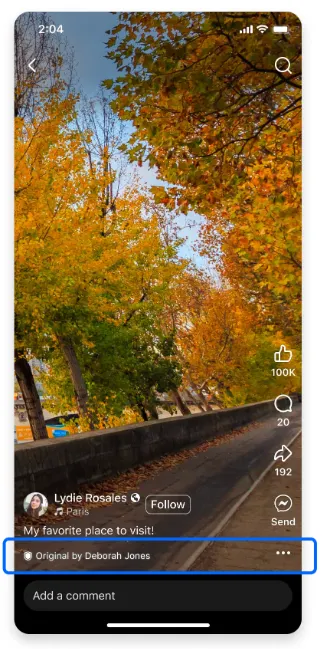Facebook Cracks Down on Copycats - Unoriginal Content to Lose Visibility
 Adshine.pro07/17/20257 views
Adshine.pro07/17/20257 viewsIn a significant move to champion creative authenticity, Facebook has announced a major algorithmic shift aimed at suppressing unoriginal content—and giving a much-needed boost to creators who generate their own material.
The goal is straightforward: ensure that credit, engagement, and monetization benefits go to those who actually create, not those who simply copy and repost.
So, what exactly qualifies as unoriginal under this new policy?
According to Facebook:
“Unoriginal content reuses or repurposes another creator’s content repeatedly without crediting them, taking advantage of their creativity and hard work. We love it when creators reshare content, add commentary in a reaction video or join in on a trend, adding their unique take. What we want to combat is the repeated reposting of content from other creators without permission or meaningful enhancements.”

In essence, transformative content—such as commentary, parody, or creative reinterpretation—is still welcomed. What Facebook is targeting is the mass replication of content—word-for-word, frame-for-frame—without attribution or added value.
It’s a move that not only supports the creator community but also aligns with user engagement goals. After all, platforms thrive when users are exposed to fresh, meaningful, and authentic content—not endless reposts of the same viral clip.
To enforce this change, Facebook is introducing tangible penalties for repeat offenders. Accounts found to be systematically recycling content without credit or enhancement will see their distribution throttled and risk losing access to Facebook’s monetization programs.
The company adds:
“In addition, if our systems detect duplicate videos on Facebook, we will reduce the distribution of the copies so that original creators can get the visibility that they deserve. We’re also exploring ways to provide proper attribution to creators. For example, we’re testing adding links on duplicate videos that point viewers to the original piece of content.”
This follows a broader trend among social platforms to curb copycat behavior. YouTube has recently rolled out similar updates to combat “mass-produced and unoriginal” content, particularly in response to the rise of low-effort, AI-generated videos that mimic popular creators.
TikTok, too, has faced a surge of deepfake and synthetic content designed to replicate the tone, style, and visuals of viral influencers. While Facebook hasn’t cited AI clones specifically, the implications are clear—this update is part of a wider crackdown on inauthentic duplication in the age of algorithmic manipulation and generative content.
Meta’s move also builds upon its ongoing effort to elevate original voices across its ecosystem. Instagram, for example, began de-emphasizing aggregator accounts in its recommendations last year, and has continued to favor fresh content over reposts where possible.
The aim is to restore fairness to the creator economy. By giving priority to the source, not the copy, Facebook hopes to better reward originality—and reduce the incentive to siphon traffic through plagiarism or unauthorized reposts.
For creators, this could be a turning point.
And for those wondering why their reach may be diminishing, Facebook offers a diagnostic tool: the Professional Dashboard. Post-level insights available there can reveal whether any distribution penalties have been applied to your content.
In a digital environment where AI tools can reproduce content with alarming speed and accuracy, Facebook’s latest update sends a clear message: originality still matters.
📢 If you're interested in Facebook Ads Account, don't hesitate to connect with us!
🔹 https://linktr.ee/Adshinepro
💬 We're always ready to assist you!
